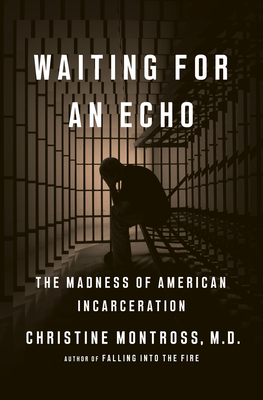
“The [American] system is broken, but we don’t have to reinvent the wheel in order to fix it. There are places that can show us a road map for how to achieve the outcomes we desire without us starting from scratch.”
[Editor’s Note: For those interested in reform of the corrupted and failed American prison system, this interview provides both information and hope for reform. — Mark L. Taylor]
By Dave Davies
Fresh Air / NPR (7/16/20)
Psychiatrist Christine Montross has spent years treating people with serious mental illnesses — sometimes in hospitals, other times in jails or prisons.
“The patients that I was seeing in my hospital were indistinguishable many times from the men and women that I was evaluating in jail,” Montross says. “But the environments were so markedly different. One [is] charged with … trying to help and heal, and the other [is] really designed to control and punish.”
Montross is a 2015 Guggenheim fellow and an associate professor of psychiatry and human behavior at Brown University’s medical school. In her new book, Waiting for an Echo: The Madness of American Incarceration, she writes that in the U.S., people with serious mental illnesses are far more likely to be incarcerated than they are to be treated in a psychiatric hospital — despite the fact that incarceration often makes mentally ill people worse.
“People who are mentally ill to begin with are in circumstances that are not therapeutic and supportive at all, that are extremely punitive,” she says. “It’s unrealistic for us to imagine that people can emerge from those situations psychologically intact.”
Montross advocates for rethinking the U.S. approach to mental illness and incarceration. While researching her book, she studied Norway’s prison system, which focuses on reducing recidivism by treating the behaviors that led to the arrest.
“That fundamental shift in philosophy was really fascinating to me,” Montross says. “The [American] system is broken, but we don’t have to reinvent the wheel in order to fix it. There are places that can show us a road map for how to achieve the outcomes we desire without us starting from scratch.”
